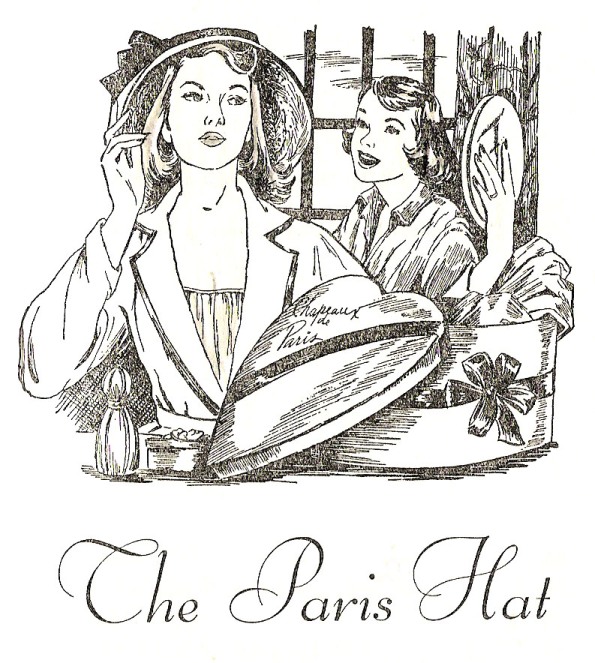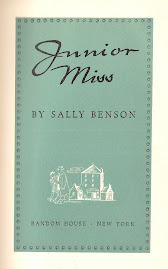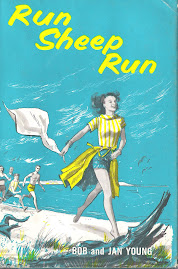 Title: April Wedding
Title: April WeddingAuthor: Eve Bennett
Publisher: Julian Messner, 1959
Cover art: unknown
Provenance: formerly the property of the Grand Forks (ND) Public Library
Setting: Adolescent Denver
Fun: Teen Times radio show; selling insurance door to door, teenage motherhood
Quote: "Bill's somber eyes stared straight ahead. 'They might feel that their trust is betrayed if we go on like this. Jeannie, you know as well as I do what ails us. We either ought to give each other up, or we ought to get married.' "
You've probably seen this after-school special. High school seniors, deeply in love, decide to get married. A year later they're broke, living in a squalid apartment with a screaming baby. Boy begins to drift away, hanging out night after night with the guys. Girl turns into a nag with hair curlers and a rolling pin. Divorce, and a lesson for us all, are just around the corner.
It could be that Eve Bennett is just a little too independent-minded to accept this script. Or possibly she just doesn't want such bad things to happen to two nice characters like Jeannie and Bill. Certainly the major plot points are there, portrayed with Bennett's usual wit and realism. A courthouse wedding, a run-down apartment, Bill selling insurance door to door to pay the bills, followed by Bill quitting several jobs and being jealous of Jeannie working, topped off by Jeannie becoming pregnant and hating it. Bennett doesn't skimp on the reality of morning sickness, mood swings and the uncertainty of taking care of a first baby.
But Bennett is not trying to scare her audience straight. Sure, babies cry and pregnancy makes you feel unattractive, but there's always the possibility that your husband will come home on your birthday with a new dress ("smoke-gray pleated nylon skirt spangled with velvety black flowers and sparkle dust") and take you out to dinner. And that, after a year of ups and downs, your father-in-law, impressed by your commitment, will offer to pay for college for both of you. As Bennett comments on the back of the book, she is not "usually in favor of teen-age marriages...[but] I think most marriages could be worked out if both parties really tried, and the one thing on the side of young marriages is that youth is more resilient."
Is Bennett painting an over-optimistic picture? If the after-school-special version of the tale is grimmer than it needs to be, in order to sell the lesson of the story, is Bennett, working in the confines of popular fiction, bound to put a happy ending on things for the same reason? The answer is probably yes. But all any writer can do is try to describe the world as they know it, and that's something Bennett does very well.











I really like the focus of this blog. As a former English teacher, just retired, it's interesting to see how novels reflect the social values of the day, or point in new directions.
ReplyDeleteThanks. These books really do fascinate me as well. There's a lot more to them then I expected.
ReplyDeleteFascinating blog, thanks for joining me.
ReplyDeleteHugs, Carole.